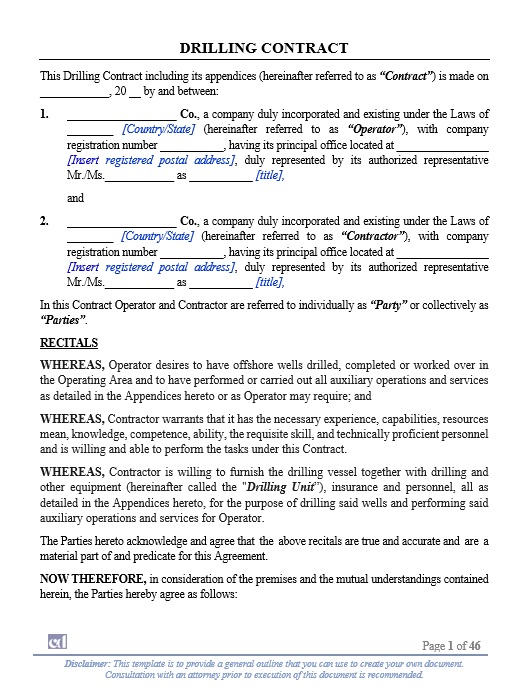A Drilling Contract defines the legal relationship between the operator and the drilling contractor. It outlines the terms for drilling a well, including timelines, payments, liabilities, and performance requirements. This article explores the rights and obligations of both parties, ensuring clear accountability in every project.

Structure and Purpose of a Drilling Contract
The drilling contract sets the tone for the entire operation. It often uses standard templates like IADC or LOGIC forms. These contracts aim to reduce risks and misunderstandings from the start. Operators use them to assign drilling tasks, while contractors use them to confirm payment terms and responsibilities.
Typically, the contract includes details about the drilling schedule, rig specifications, payment terms, insurance, and liabilities. Both parties must sign and review all terms thoroughly before operations begin.
Rights of the Operator and Contractor
The operator has the right to monitor and inspect the drilling work at any time. They may also suspend or terminate the contract if the contractor breaches any condition. However, the operator must still pay for services completed before the breach.
On the other hand, the contractor has the right to receive timely payments for services. The contractor may also stop work if the operator fails to pay or comply with safety rules. Therefore, each party must follow the contract to avoid disputes.
Obligations That Ensure Smooth Execution
Operators must provide accurate site data, plans, and permits before the work starts. They must also ensure the site meets safety and access standards. In turn, contractors must provide a fully functional rig, trained personnel, and follow environmental laws.
Both parties must report any delays or issues immediately. This helps maintain trust and solve problems before they grow. In all cases, good communication is key to smooth project delivery.
Risk Allocation and Dispute Resolution
The contract usually includes clear clauses for risk allocation. These specify who bears the costs of accidents, equipment damage, or delays. It also includes dispute resolution steps, often through arbitration or mediation, to avoid lengthy legal battles.
By clarifying roles early, the drilling contract helps manage expectations and ensures fair dealings throughout the project lifecycle.
Check out more pages of our website for related content:
Access the Full Contract Directory
You can browse the complete alphabetical list of all commercial, financial, and project-based contract templates by visiting our A–Z Contract Index.
References
- International Association of Drilling Contractors (IADC)
- LOGIC Standard Contracts
- Oil and Gas UK Guidelines
has been added to your cart!
have been added to your cart!



